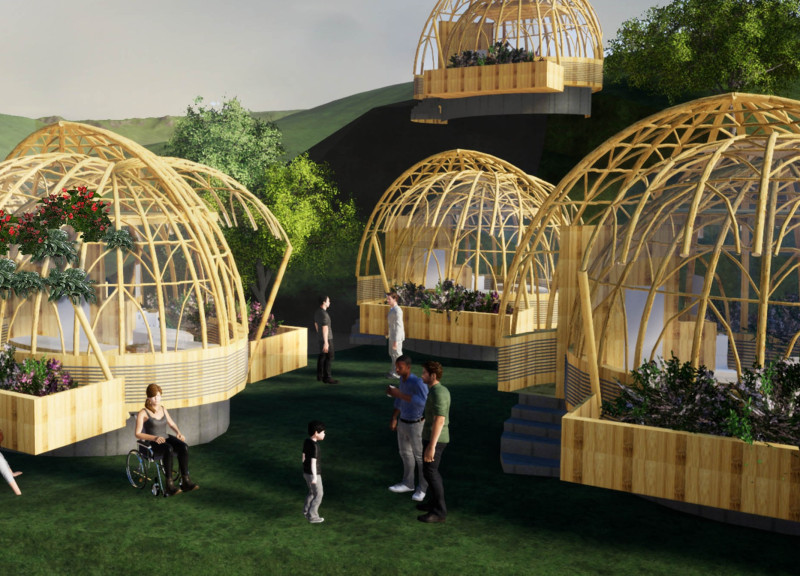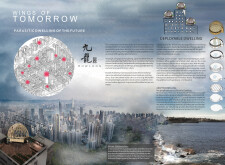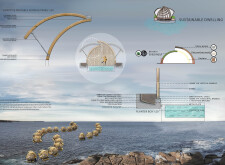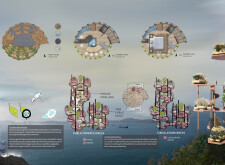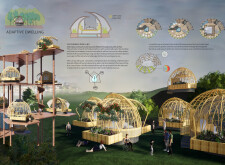5 key facts about this project
The project "Wings of Tomorrow" presents an innovative approach to addressing urban housing challenges, particularly in densely populated areas such as Kowloon, Hong Kong. This architectural design is based on the concept of parasitic architecture, where new living units are created by integrating them into existing structures, thereby optimizing limited urban space. The project emphasizes sustainability and adaptability, with micro-living environments that cater to the evolving demands of urban dwellers.
The design consists of modular, deployable dwelling units that can easily attach to rooftops or other vertical spaces. These units feature multi-functional interiors, maximizing usability within a compact footprint. The project aims to provide affordable and flexible living solutions that encourage community interaction while maintaining ecological balance in the urban landscape.
Sustainable and Adaptive Design Features
"Wings of Tomorrow" is distinguished by its use of sustainable materials and adaptable design features. Key materials such as bamboo, polyestermesh, and sustainable concrete have been selected for their environmental benefits and structural integrity. Bamboo serves as a lightweight yet robust structural component, while polyestermesh provides weather-resistant exterior coverage, ensuring durability in urban settings. Sustainable concrete contributes to the overall reduced carbon footprint.
Beyond materials, the project emphasizes adaptability. The modular units allow for easy reconfiguration based on individual or community needs. Their design includes integrated green roofs and bioskin systems that support biodiversity, enhancing the urban ecosystem while providing insulation and rainfall retention. The water harvesting systems are another distinguishing aspect, facilitating self-sustained living environments that reduce reliance on municipal resources.
Community-Centric Urban Planning
The "Wings of Tomorrow" project takes community interaction into account through its design. The arrangement of the dwelling units facilitates social gatherings by incorporating semi-public spaces that encourage residents to connect. The project's architectural layout promotes circulation paths that enhance accessibility and foster community engagement. This design approach not only addresses housing shortages but also serves to rebuild social bonds within dense urban environments.
Micro-living solutions, characterized by multifunctional spaces, further the project's commitment to efficient use of space. Users are offered flexibility in how they inhabit their living units, with features that adapt for work, leisure, and social activities. This emphasis on micro-living aligns with contemporary lifestyle trends where urban dwellers seek functional and dynamic living environments.
To explore more details about "Wings of Tomorrow," including architectural plans, architectural sections, and architectural ideas, readers are encouraged to review the project's presentation for a comprehensive understanding of the design's functional and aesthetic dimensions.


